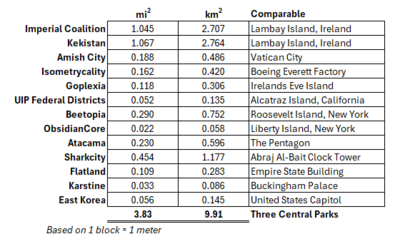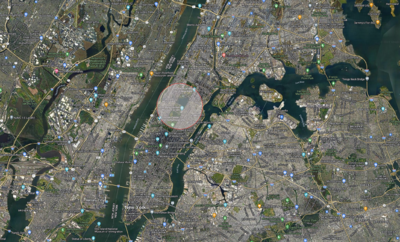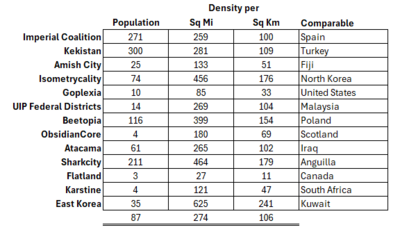UIP Size Comparison
The United Imperial Provinces (UIP) stands as one of the most expansive nations on RetroMC. Below is a detailed breakdown of its land value, size, population density, and how its member states compare to real-world landmarks and historic empires.
Land Value
The total land value of the United Imperial Provinces is around $427,000. The table below breaks these calculations down by member state.

Size
The United Imperial Provinces comprises an equivalent of 3.83 square miles (9.91 square kilometers). This makes it three times larger than Central Park in New York City. Below is a break down of these calculations by member state. Also included in the table is a landmark or other location that is roughly equivalent in area and/or floor area.

Size Visualized
Here is what the size of the United Imperial Provinces would look like if placed over Central Park.

Here is a visualization when placed over London, including a few member states for comparison.

Population Density
Based on the reconciled populations of the member states (see Calculation Methods), below is a table of estimated population densities of member states. Also included is a country with a comparable population density.

Relative Landmass
Below is a table that assigns a historic empire to each member state as determined by a percent of the whole land area. For example, the Spanish Empire controlled roughly 11-15% of the Earth's land area. SharkCity controls 11.87% of the U.I.P’s land area. Therefore, SharkCity got the Spanish Empire as a comparable.

Calculation Methods
Key methods used in calculations are listed below.
- Each chunk was assigned a land area of 0.016 square kilometers before determining land area.
- Kekistan, Imperial Coalition, Goplexia, Amish City, and Isometrycality were each reconciled to their pre-migration populations plus an adjustment for post-migration population gains.
- All member states include any region that is considered to be political members of the respective member state.
- Land area for each member state includes any political entities that are not recognized by JVillage.